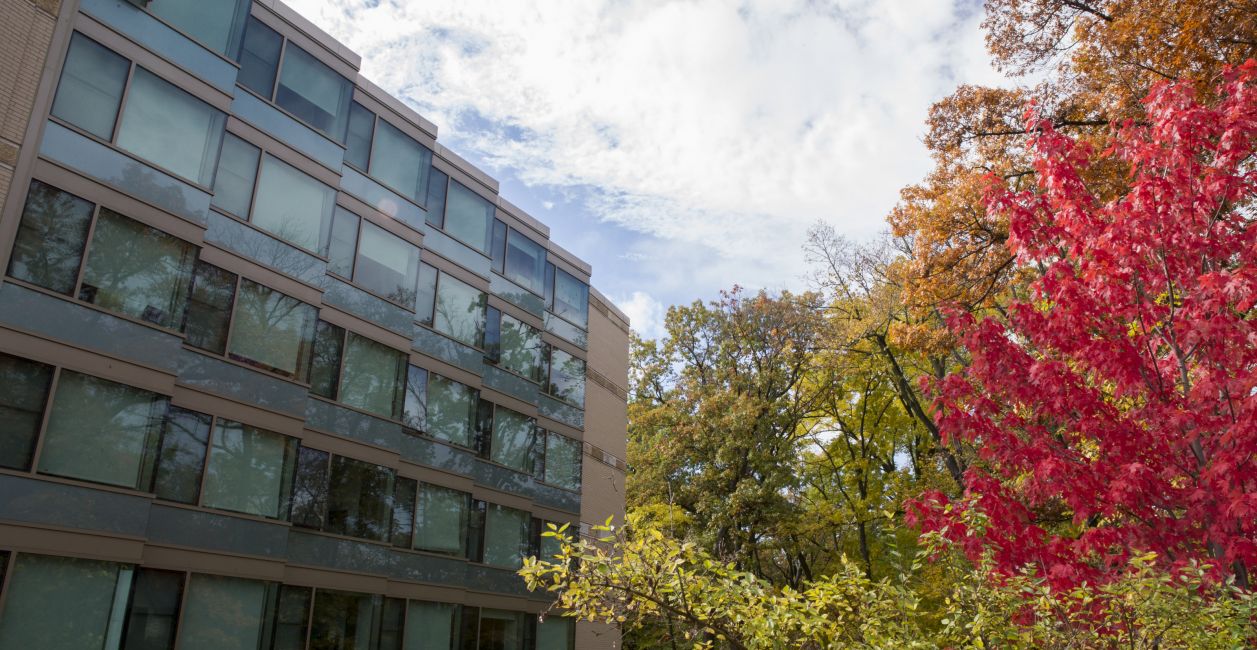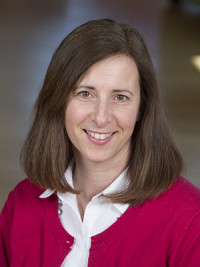
Professor’s genuine care pays off for accounting students
Professor Julie Dawson has taught accounting at Carthage College for 29 years, but another number is the most meaningful measure of her career.
“I have kept up with at least 200 alumni,” she says.

Indeed, a defining advantage of a Carthage accounting degree is a faculty commitment to combine academic rigor with individualized support along the pathway to a rewarding career — a commitment that has proven very effective.
Graduates recently placed in the top 6% nationwide among first-time takers of the CPA exam. The program also has an extremely high job placement rate; alumni are sought after by the top 10 CPA firms in the country.
“At Carthage, faculty play an important role as mentors,” Prof. Dawson says. “From day one, the students know that we care deeply about them on a personal and on a professional level.”
That success takes strength — not only from the curriculum, but also from the caliber of students themselves.
“I always say I have the best job in the world, because I get to work with young adults who are so intellectually curious. I can have incredible conversations with them,” she says. “They work very hard, and they’re incredibly kind; I want to root for all of them.”
For Prof. Dawson, who earned her undergraduate degree from Augustana College and a master’s in accountancy from the University of Wisconsin-Madison, the liberal arts context also gives accounting students in-demand credentials.
Learning to think critically, to write and speak clearly, to be mindful of differing viewpoints — these are vital skills well-integrated into the Carthage experience. They prove critical to successful accountants in any setting, she says, be it corporate or nonprofit.
“Accountants actually speak and write more than they crunch numbers,” Prof. Dawson says. “When we talk with recruiters, they always ask: ‘Do your students have the whole package?’ They are looking for people with strong interpersonal dynamics.”
Accounting courses reinforce that focus with team-based projects.
“In all of our classes, we have opportunities to work in teams,” she says, including when writing complex case analyses. As a result, once in the workplace, Carthage graduates stand out.”
Carthage accounting students also have opportunities to grow their skills outside the classroom. Prof. Dawson founded the Volunteer Income Tax Assistance (VITA) program, which pairs students with clients in Kenosha County. About 30 volunteers, all certified by the IRS, prepare taxes for low- to moderate-income families free of charge.
She draws on her own early-career experience in public accounting “to smooth out that path for students” as they prepare to join the workforce.
“I want to see that the best and the brightest students come to Carthage and have the same opportunity as if they went to a school like UW-Madison,” Prof. Dawson says. “Our students are just as good, if not better, than those at any of the top schools in the country. They just need the opportunity to succeed, and it’s my obligation to provide those opportunities to them.”
Looking ahead, she sees continued high demand for Carthage-educated accountants. On one hand, “it’s a distinguished degree because it’s very rigorous,” she says. But it’s also a versatile degree — graduates of the program have held comptroller positions at organizations as varied as the Chicago Bulls and the Field Museum.
“Every organization needs accountants,” says Prof. Dawson. “In whatever field or geographic area that you would like to start your career, there’s a strong chance you can do that with an accounting degree.”
